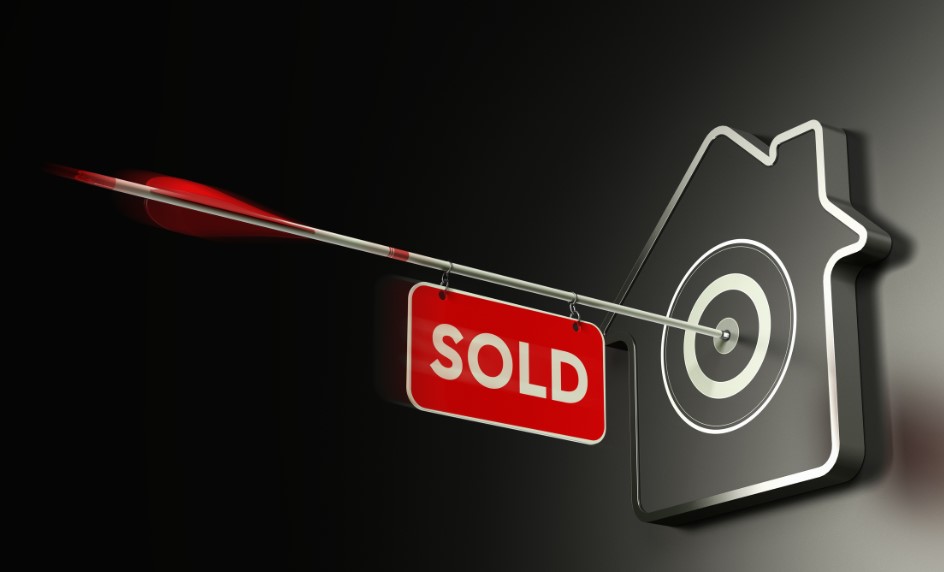Knowing how to sell a house can have a big impact on both the outcome of the sale and your experience of the process. But, unless you’ve done it before, it’s hard to know exactly what to expect.
There are many reasons why you might choose to sell your house – you may be upgrading to a bigger property or better location, downsizing after the kids have moved out, or just want to release the capital from your investment. Whatever your motivation, choosing to sell is a big step. It’s also the first of many decisions you will need to make.
Working out how to sell a house takes time and more than a little experience. While you won’t be going through the process alone, it’s still important to have some idea of what’s involved.
How to sell a house – the main steps
The sales process has three main phases:
1. Preparation and strategising: Once you’ve decided that it’s time to move on, you need to work out the best way to make that happen. This initial phase is all about planning your overall approach, selecting who will help you, and preparing yourself and your property. Activities to be completed in the preparation phase include
- Selecting your agent: Your agent will work with you throughout the process and guide you through how to sell your house. The exact services offered will vary from agent to agent and can have a significant impact on the outcome of your campaign, so you need to carefully consider whose approach will best suit your property and your goals.
- Choosing your sales method: There are three main methods of sale in Australia – Auction, Expression of Interest (or Sale by Fixed Date), and Private Sale (or listed asking price). The best approach for you will depend on your property location and type, the state of the local market, and your goals (e.g. if you have set timeline you’re working towards).
- Setting your price: Getting your list price (or reserve) right can be tough – set it too high and you could scare off buyers, set it too low and you could compromise your sale price. Your agent should be able to help you with this, recommending a price range based on recent sales of other comparable properties in your area.
- Preparing your property: No matter how clean and tidy you keep your home, there’s sure to be at least some work to be done to get it looking its best. Even if you only need to declutter and do some minor patching and painting, this can take some time, and you should plan accordingly. You may also want to consider seeking expert styling advice from a design professional that understands what buyers look for and how to sell a house.
- Completing the paperwork: From your agency’s sales agreement to the actual sales contract, there’s a raft of paperwork that will need to be prepared and signed. You will also need to engage a conveyancer or solicitor as some of this documentation must be completed by a qualified and licensed legal professional.

2. The sales campaign: Once you and your property are sufficiently prepared, you can begin the actual sales campaign. This phase is all about attracting buyers. Sales campaign activities include:
- Preparing the marketing: When looking at properties, buyers will want to see high quality photos, a clear description of the key features, and a professional floorplan. Most agencies will offer these services in a proposed advertising package, as well as other value-add options like video walkthroughs and social media activity.
- Listing the property: As 90% of buyers now start their search online, advertising your property on the main real estate sites (like realestate.com.au and domain.com.au) is how to sell a house. As activity online peaks at different times of the day and week, it’s important to carefully choose when to go live with your ads to get the greatest amount of interest (a good agent will be able to help you with this planning).
- Arranging inspections: Understandably, buyers will want to visit your property to get a sense of the space and whether it will suit them, their family, and their lifestyle. Your agent should manage planning and conducting inspections and private appointments, while monitoring the interest of the potential buyers who attend. As a minimum, you should aim to hold two inspections each week (one during the week and one on Saturday) and the presentation of the property should match the advertising photos.
3. Sale and settlement: All going well, after inspecting your property, one or (hopefully) more buyers will want to purchase your property. The final phase of the process is all about agreeing the terms and formalising the sale. This is done by:
- Accepting an offer: Potential buyers will indicate their interest by putting in an offer, which will outline the terms they are proposing (sale price, length of settlement, amount of deposit etc.). If more than one offer is received, or you’re not happy with the terms of an offer, your agent will need negotiate with the interested parties to get you the best outcome possible. Once you’re happy with the proposed terms, you agree to sell by accepting the offer.
- Exchanging contracts: Significant documentation is required to formalise the sale and preparing to transfer the legal ownership of the property. Most of this will need to be completed by your solicitor or conveyancer.
- Reaching settlement: As part of your sale negotiations, you will agree on a settlement period with your buyer. Usually 60 or 90 days (though it can be shorter or longer, if required and agreed), this allows time for the necessary legal and financial processes to be completed, and for you to pack up and move out of the property. When the property settles – this is when you will receive funds from the sale.
How to sell a house – tips and tricks
While much of the sales process is ‘learn as you go’, there are few tips to how to sell a house. As you go through the process, try to keep in mind that:
- There’s no such thing as the perfect time to sell: When planning how to sell a house, most people get caught up on the timing – thinking that Spring is the best time to sell! A good agent will monitor sales activity and new listings to the market and may be able to indicate when there are less properties on the market – this means more interested buyers in your property. While when you choose to sell can impact the final sale price, the market is constantly changing and it’s almost impossible to predict when prices will peak or the amount of properties on the market. As such, the ‘perfect time’ is actually whenever best suits you to sell.
- Decisions shouldn’t be solely based on price: While you should aim to keep your costs down, you largely get what you pay for. As such, when planning how to sell a house, you should try to focus on the best value for money rather than lowest cost.
- Saving on advertising could cost you in the long run: Marketing is one of the main things lower priced agents compromise on to cut costs. As such it’s important to check what advertising is included before you sign their agreement.
- Professional photos sell houses: When looking at properties online, most buyers look at the location and the photos. With that in mind, using a professional photographer can make a big difference as they will make sure your house looks its best.
Want more information?
Still have questions about how to sell a house? If you have any further questions about the fees for selling a house, give Local Agency Co. a call. We help our clients maximise their sale price and achieve great results by providing professional advice, setting a tailored strategy and working hard. We are educated, trusted, transparent, responsive, and innovative. Contact us on 1300 258 888 or via info@localagencyco.com.
